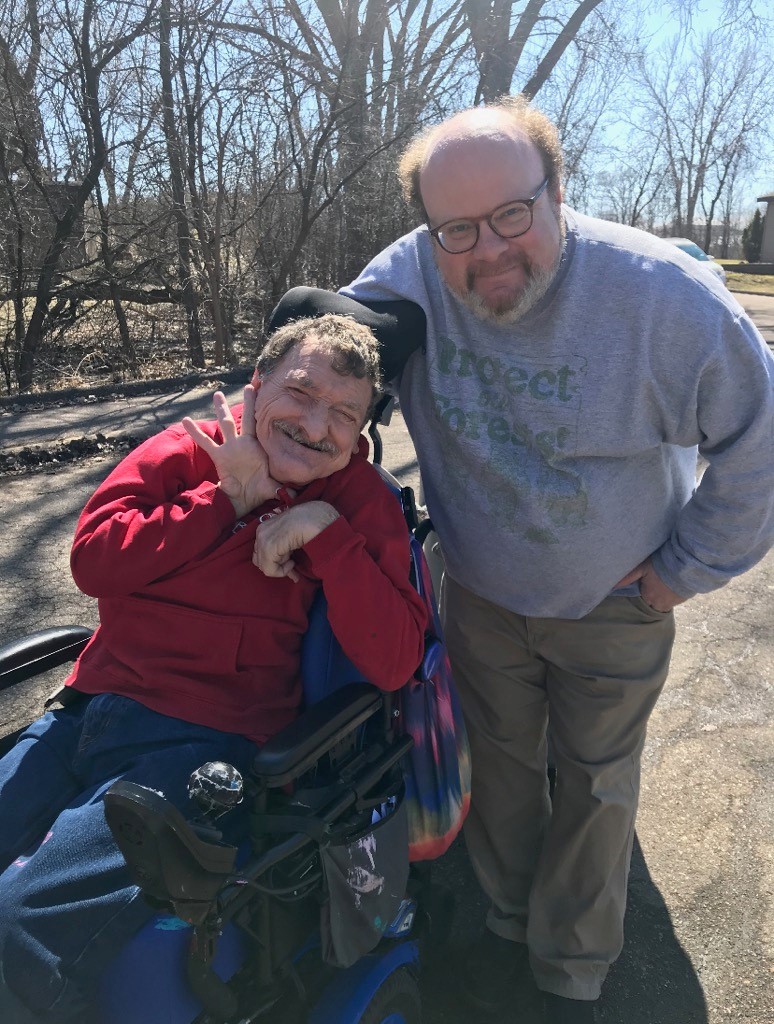Direct disability support goes mobile during ‘stay home’ period
The ability to engage with others, to learn and do something productive has been disrupted by coronavirus stay at home orders in Minnesota. It’s especially true for people with developmental or intellectual disabilities, but day service programs like MSS are going mobile to provide relief.
“It’s like you really know who you are working for when there’s a crisis,” said Annie Le, a programming and community coordinator with MSS. After leaders organized the effort and shared options, she chose to assist at a Mendota Heights group home. “How they (MSS) handled it was amazing. I think I might cry.”
Le is one of about 30 direct support professionals the St. Paul-based nonprofit is sending out to homes where people with disabilities live, taking the arts, food, equipment, care packages and other things to serve people who, on a normal day, would be at MSS.
The stay at home order from Governor Tim Walz prompted MSS to close down most of its programs, and furlough many staff. It employs just over 150 people.
MSS gets ahead of the curve
MSS Vice President Michelle Dickerson said before the provider had to close down, leaders reached out to staff members to plan. With many about to be laid off from their jobs, who wanted to keep working and serving the individuals they care for? Spreadsheets were created with desired shifts, residential sites and staff locations, said Dickerson.
There’s been a shortage of DSPs for years, both on the day service and residential sides of the industry.
“Given our current workforce crisis, this is probably the last thing anybody needs,” said Dickerson. “We wanted to make sure people are receiving the support they need.”
Using an agreement template put together by an attorney for Rise, a large disability service provider in the Twin Cities, MSS reached out to residences. It would adapt to b ecome a temporary staffing service to help the homes, Dickerson explained. She received a quick response from many residences, which said there were many shifts that needed covering and the help would be appreciated.
ecome a temporary staffing service to help the homes, Dickerson explained. She received a quick response from many residences, which said there were many shifts that needed covering and the help would be appreciated.
Creativity, flexibility and skills converge
With a focus on arts activities, MSS staffers are bringing virtual tours, virtual dance and other creative outlets to engage people. The industry is all about relationships, Dickerson explains. “They enjoy working with human beings and that’s what makes it so special.”
Le joined with an MSS coworker, Stephen Heebink, at Living Well Disability Services in Mendota Heights. She serves four of the same participants that were attending MSS. Residential staff have been welcoming and grateful, she said. “We’re here together. I have a partner with me, and it feels really nice.”
The two help get people out of bed in the morning and begin the day. They make breakfast and then start their programming. They walk outside, practice yoga for relaxation and, of course, create art.
Living Well participants were happy to see the temporary staffers, and super happy when they found out they were coming all week, Le said. “It’s just a very loving place.”
A temporary easing of regulations is allowing the DSPs to jump in more quickly at group homes. She misses MSS, but is assured that she and her coworkers will return.
Hope for return to regular services
MSS CEO Julie Johnson emails her staff each day with information they need. “She’s giving us a lot of hope, that we’re still going to be together,” said Le. Johnson tells her staff not to worry, that they will get through this.
Le said it feels nice to fill her time with work, rather than being quarantined and thinking about doom and the coronavirus. “I’m using my skills as a caregiver.”
She’s been in the field for nine years, six at MSS and three years in a group home after college. “It’s been a while though, but it’s been good,” Le said.
Photos above: Annie Le from MSS, left, assisted Kelly M. with a painting project. Stephen Heebink, a DSP with MSS, right, is providing day services to Dan Stallsworth at his home.
